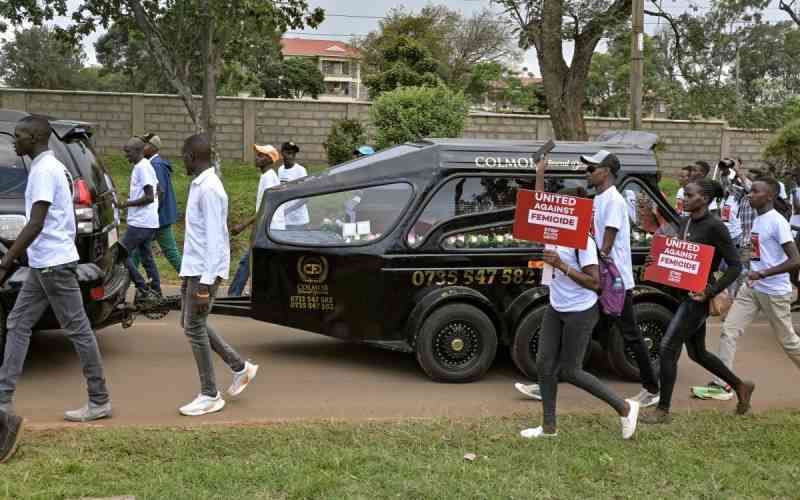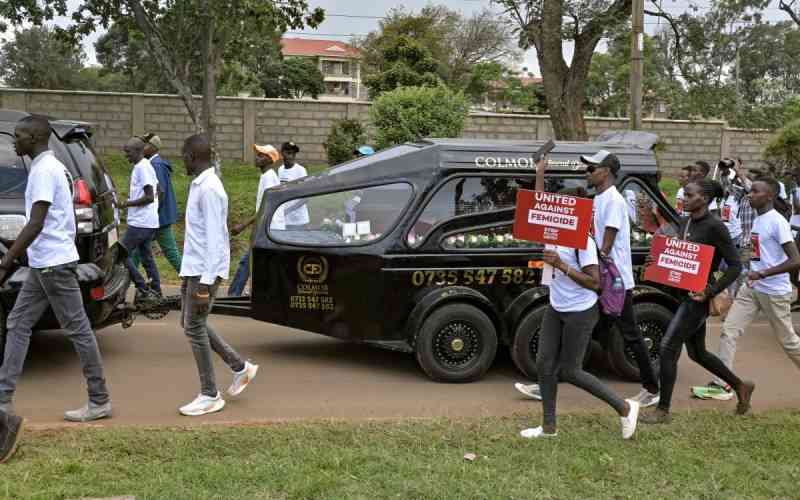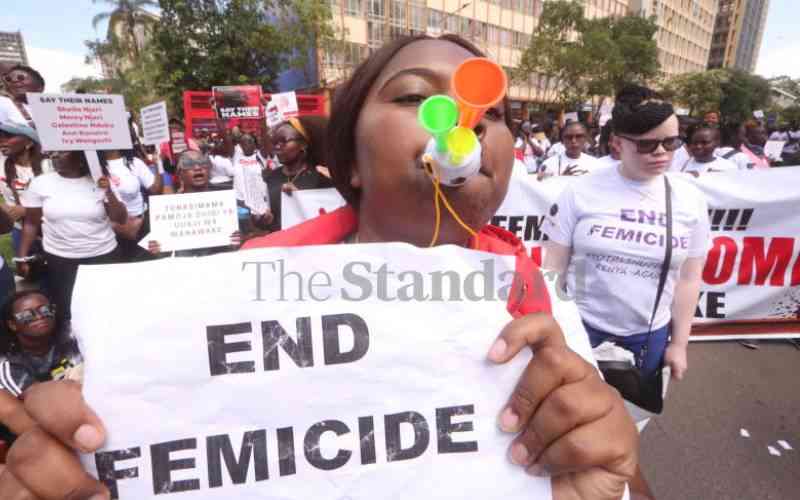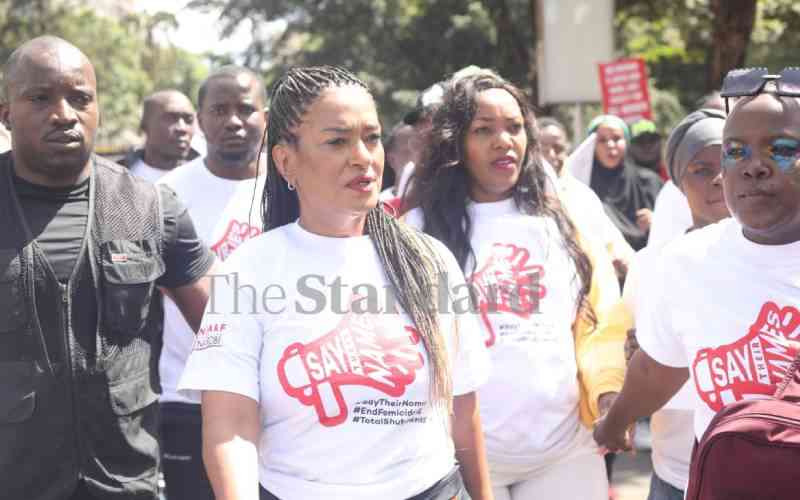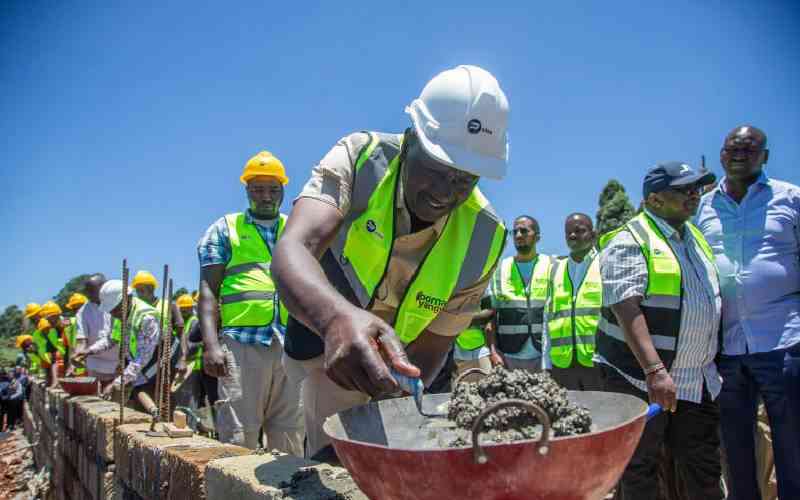
Femicide, the intentional killing of women, has become a growing concern in Kenya. This month alone case after case is reported of femicide mostly from romantic relationships.
This begs the question of why, someone considered to be close enough to share passion can quickly turn to be brutal. Sorry you said accidental? No, I don’t think so.
The visible results of femicide is a reflection of deeply rooted cultural norms and a perceived mentorship gap for the boy child. The growing gender-based violence reflected in negative masculinity is an implication of a mentorship gap on the upbringing of our boys.
Kenya, like many other societies, grapples with deep-seated cultural beliefs and norms that perpetuate gender-based violence. Patriarchal structures often reinforce the perception of women as subordinate to men, fostering an environment where acts of femicide can occur with alarming frequency.
Cultural practices such as early and forced marriages, female genital mutilation (FGM), and devaluation of women contribute to the vulnerability of women and girls.
Addressing femicide requires not only challenging cultural norms but also promoting economic empowerment for women, providing them with the means to escape abusive situations. But more urgently though, deliberate efforts need to be made to mentor the boy child. While efforts have been made to address gender-based violence against women, there is a growing concern about a perceived mentorship gap for the boy child.
The focus on empowering girls has sometimes led to neglecting the importance of nurturing positive masculinity in boys. Lack of guidance and role models for boys may contribute to toxic masculinity, perpetuating harmful behaviours and attitudes towards women.
The adolescent girls and young women’s exceptionalism with socioeconomic interventions has left adolescent boys and young men (ABYM) trailing behind, thus becoming a marginalised and underserved population. This marginalisation grows into resentment and rage during their growth that becomes manifest in negative masculinity, the probable cause of runaway sexual and gender-based violence, including rape which are all recipes for increase in HIV infections and teenage pregnancy.
To combat femicide, it is crucial to recognise the importance of mentorship and education for the boy child. Schools, communities, and families play a vital role in instilling values of respect, empathy, and equality in young boys.
Mentorship programmes that engage positive male role models can help break the cycle of violence by promoting healthy relationships and challenging harmful stereotypes. Open dialogues within communities can help challenge harmful practices and promote gender equality. Additionally, policymakers must enact and enforce laws that protect women and punish perpetrators of gender-based violence.
Strengthening legal frameworks and increasing awareness about the consequences of femicide are essential steps towards creating a safer society for women. A holistic approach that addresses cultural practices, economic empowerment, and mentorship for boys is key.
By fostering a society that values and respects all individuals, regardless of gender, Kenya can take significant strides towards eliminating femicide and creating a safer environment for everyone.
-The writer is a public health doctoral SD4H fellow at Maseno University. [email protected]
Stay informed. Subscribe to our newsletter
 The Standard Group Plc is a
multi-media organization with investments in media platforms spanning newspaper
print operations, television, radio broadcasting, digital and online services. The
Standard Group is recognized as a leading multi-media house in Kenya with a key
influence in matters of national and international interest.
The Standard Group Plc is a
multi-media organization with investments in media platforms spanning newspaper
print operations, television, radio broadcasting, digital and online services. The
Standard Group is recognized as a leading multi-media house in Kenya with a key
influence in matters of national and international interest.
 The Standard Group Plc is a
multi-media organization with investments in media platforms spanning newspaper
print operations, television, radio broadcasting, digital and online services. The
Standard Group is recognized as a leading multi-media house in Kenya with a key
influence in matters of national and international interest.
The Standard Group Plc is a
multi-media organization with investments in media platforms spanning newspaper
print operations, television, radio broadcasting, digital and online services. The
Standard Group is recognized as a leading multi-media house in Kenya with a key
influence in matters of national and international interest.


